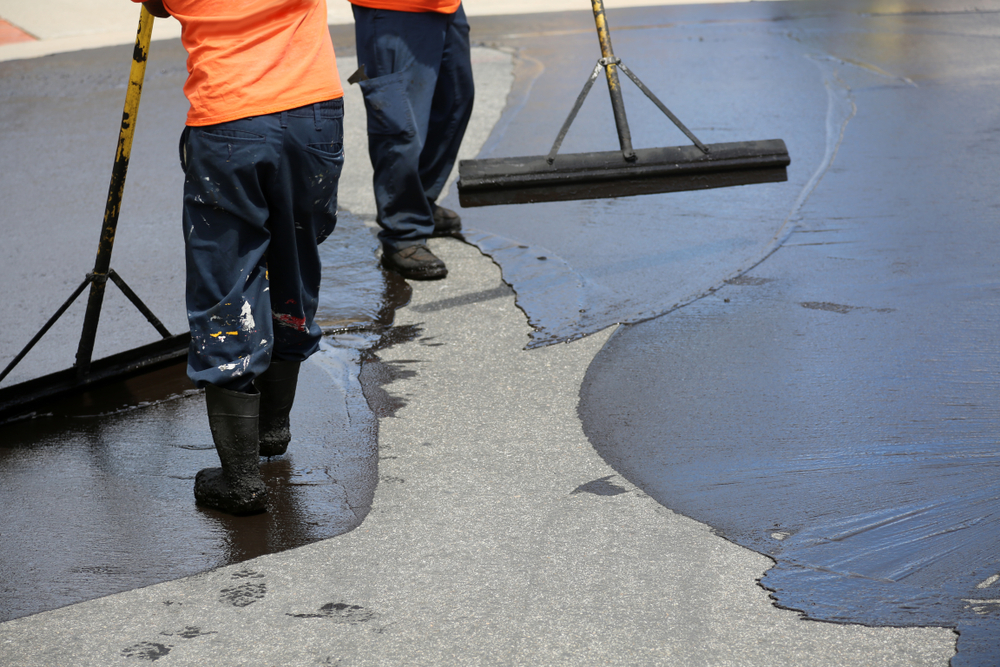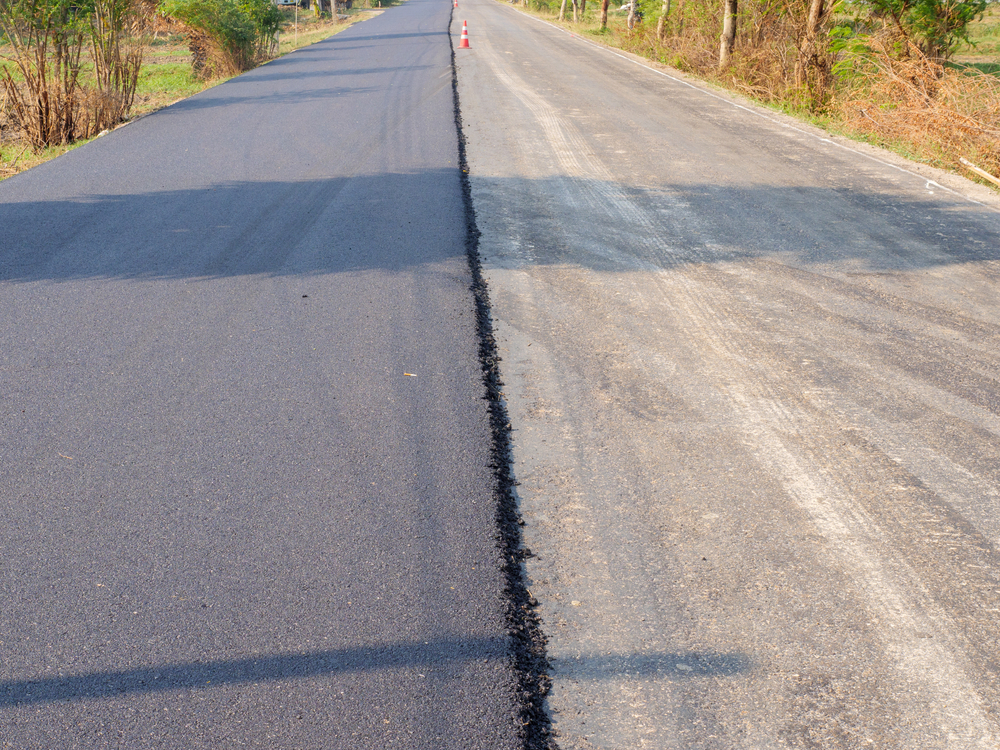
Replacing an asphalt driveway is a significant home improvement project that requires careful planning, especially when it comes to timing. Choosing the right time of year can impact the quality of the installation and the longevity of your new driveway. Here’s a guide to help you determine the best season for your asphalt paving project.
Understanding the Asphalt Paving Season
Asphalt paving projects are highly dependent on weather conditions. The ideal time for asphalt paving is during the warmer months when temperatures are consistently above certain thresholds. This ensures that the asphalt can be laid and compacted properly, leading to a durable and smooth driveway surface.
Factors Influencing the Timing
Several factors play a crucial role in determining the optimal time for replacing an asphalt driveway:
1. Temperature:
Asphalt needs to be installed when the ambient temperature is warm enough to allow proper compaction. Typically, temperatures should be above 50°F (10°C) and rising for effective paving.
2. Rainfall:
Excessive moisture can affect the quality of the asphalt mix and compaction process. Therefore, it’s advisable to choose a time of year when rainfall is minimal and precipitation levels are low.
3. Freezing Conditions:
Cold weather can cause asphalt to cool too quickly, leading to premature hardening and potential cracking. Avoid winter months or periods with freezing temperatures for asphalt paving projects.
4. Contractor Availability:
The busiest times for asphalt contractors are often during the spring and summer months when weather conditions are favorable. Scheduling your project during less peak times might ensure more availability and possibly better pricing.
Best Seasons for Asphalt Driveway Replacement
Based on the factors mentioned above, the following seasons are generally considered the best for replacing an asphalt driveway:
Spring
Spring is one of the most popular times for asphalt paving projects. The weather is typically mild and warming up after winter, which facilitates optimal conditions for asphalt installation. Contractors are also usually more available at this time, although it can be a busy period due to high demand.
Summer
Summer is another excellent season for asphalt driveway replacement. The warm temperatures allow the asphalt to be laid and compacted effectively, ensuring a smooth finish. Longer daylight hours also provide more time for contractors to work, potentially expediting the project timeline.
Early Fall
Early fall can also be a suitable time for asphalt paving, as temperatures are still relatively warm during the day. Contractors may be less busy compared to the peak summer months, making it easier to schedule your project. However, it’s important to complete the installation before temperatures drop significantly.
Avoiding Less Ideal Times
While asphalt can be installed year-round in some regions with mild climates, certain times should generally be avoided for optimal results:
- Late Fall: Temperatures are dropping, and daylight hours are reducing, which can affect the paving process.
- Winter: Cold temperatures can cause the asphalt to cool too quickly, leading to potential issues with compaction and durability.
Conclusion
Choosing the best time of year to replace your asphalt driveway can significantly impact the success of your project. By considering factors such as temperature, precipitation, and contractor availability, you can ensure that your new driveway is installed correctly and will last for years to come. Whether you opt for spring, summer, or early fall, planning ahead and scheduling your project during the optimal season will help you achieve the best results.
Need an Asphalt Paving Contractor in Ijamsville, MD?
Here at Bob Nichols Paving, we take pride in being a leading asphalt paving contractor known for our commitment to excellence and unmatched expertise in the industry. Whether you need a new driveway, asphalt paving for your home, or a perfectly smooth parking lot for your business, our skilled team is equipped to handle projects of any scale and complexity. Contact us today to learn more about what we can do for you!

When it comes to replacing your driveway, one of the key decisions you’ll need to make is choosing between a concrete or asphalt surface. Both materials have their own set of advantages and disadvantages, so it’s important to weigh your options carefully before making a decision. In this blog post, we will discuss the key differences between asphalt and concrete driveways and provide insights on how to choose the right material for your driveway replacement.
Differences Between Asphalt and Concrete Driveways
1. Cost
One of the main factors to consider when choosing between asphalt and concrete driveways is the cost. Generally, asphalt driveways are more affordable to install compared to concrete driveways. However, concrete driveways have a longer lifespan, which can make them a more cost-effective option in the long run. It’s important to consider your budget and long-term maintenance costs when deciding between the two materials.
2. Durability
Durability is another important factor to consider when choosing between asphalt and concrete driveways. Asphalt driveways are known for their flexibility, which allows them to withstand fluctuations in temperature and heavy vehicle traffic. However, concrete driveways are more resistant to cracking and can last up to 30 years or more with proper maintenance. If durability is a priority for you, a concrete driveway may be the better option.
3. Maintenance
Maintenance requirements are also an important consideration when choosing between asphalt and concrete driveways. Asphalt driveways require regular sealing and maintenance to prevent cracks and deterioration. On the other hand, concrete driveways are more low-maintenance and only require occasional sealing and cleaning. If you prefer a low-maintenance option, concrete may be the better choice for your driveway.
4. Aesthetic Appeal
The visual appearance of your driveway is another factor to consider when choosing between asphalt and concrete. Asphalt driveways have a classic black appearance that can complement a variety of home styles. Concrete driveways, on the other hand, offer a clean and modern look with a range of color and finishing options available. If curb appeal is important to you, consider the aesthetic differences between the two materials.
5. Climate Considerations
Climate can also play a role in determining the best material for your driveway replacement. Asphalt driveways can soften in extreme heat and become susceptible to damage from heavy vehicles. Concrete driveways, on the other hand, are more resistant to heat and can withstand freezing temperatures without cracking. Consider the climate in your area and how it may impact the performance of asphalt or concrete driveways.
How to Choose the Right Material for Your Driveway
1. Consider Your Budget
Start by determining your budget for the driveway replacement project. Asphalt driveways are generally more affordable upfront, while concrete driveways may be a better long-term investment. Decide how much you are willing to spend on the installation and maintenance of your driveway.
2. Assess Your Needs
Think about your specific needs and priorities when it comes to your driveway. Are you looking for a low-maintenance option? Do you prioritize durability and longevity? Consider factors such as maintenance requirements, aesthetics, and climate considerations when choosing between asphalt and concrete.
3. Get Professional Advice
Consult with a reputable paving contractor to get expert advice on choosing the right material for your driveway. A professional contractor can assess your property and help you determine the best option based on your budget, needs, and preferences. They can also provide guidance on maintenance requirements and long-term durability.
4. Compare Quotes
Obtain quotes from multiple paving contractors to compare the cost of installing asphalt and concrete driveways. Make sure to ask about any additional fees or charges that may affect the overall cost of the project. Consider the total cost of installation and maintenance when making your decision.
Summary
Choosing between asphalt and concrete driveways requires careful consideration of factors such as cost, durability, maintenance, aesthetic appeal, and climate considerations. By assessing your budget, needs, and getting professional advice, you can make an informed decision on the right material for your driveway replacement project. Whether you opt for the flexibility of asphalt or the longevity of concrete, selecting the material that best suits your property and preferences will ensure a durable and attractive driveway for years to come.
Need an Asphalt Paving Contractor in Ijamsville, MD?
Here at Bob Nichols Paving, we take pride in being a leading asphalt paving contractor known for our commitment to excellence and unmatched expertise in the industry. Whether you need a new driveway, asphalt paving for your home, or a perfectly smooth parking lot for your business, our skilled team is equipped to handle projects of any scale and complexity. Contact us today to learn more about what we can do for you!





